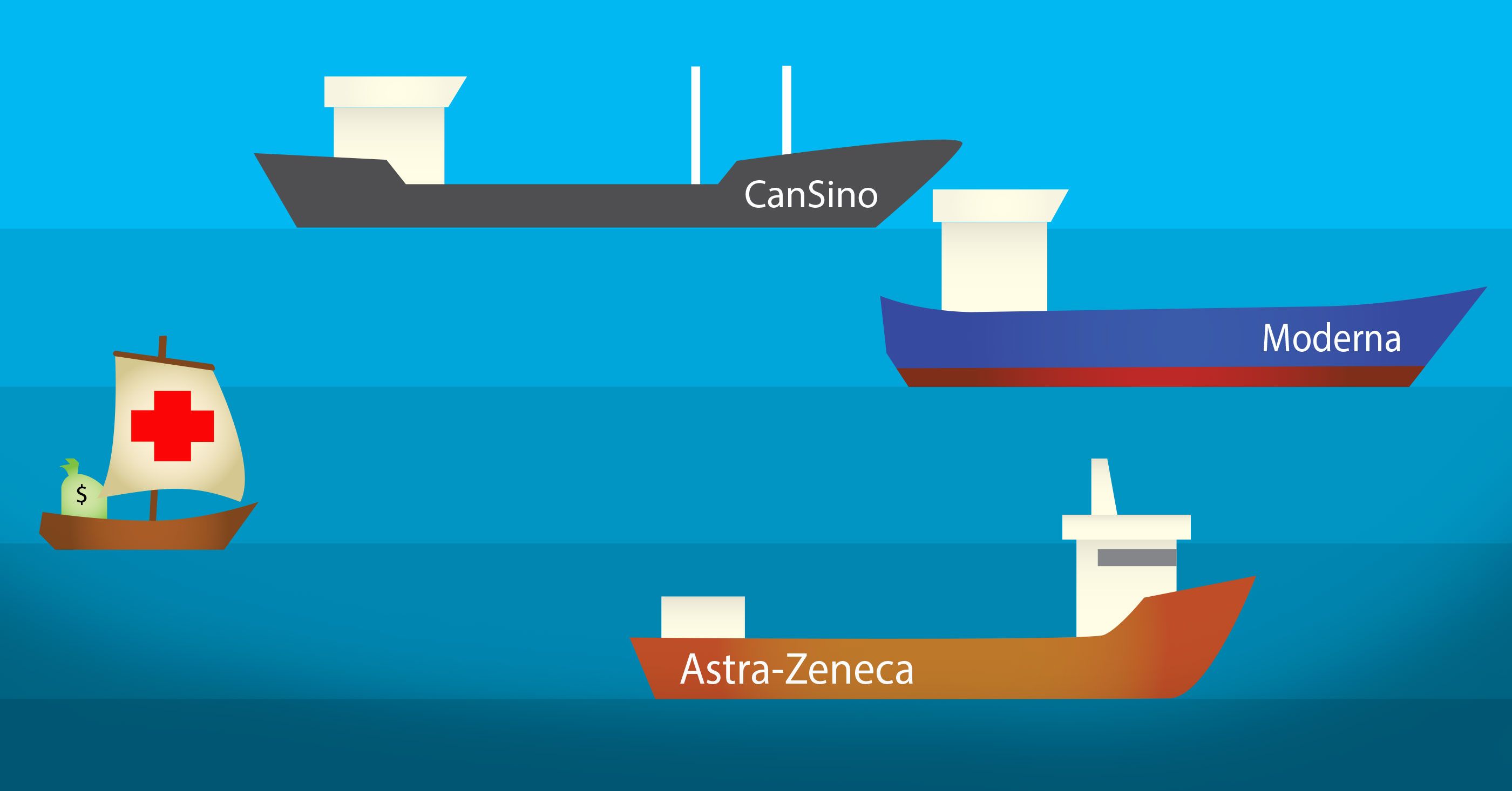Government to Fund J&J COVID Vaccine Trials Despite Company's Late Start and Lagging Progress

- J&J lags behind other drug makers in race for vaccine
- Nonetheless, government slates more funds for testing J&J's vaccine candidate
- On the WHO list of top 16 vaccine contenders, J&J didn't make the cut
On the same day that the World Health organization published a draft report which left J&J's COVID-19 vaccine candidate off of list of the top 16 contenders, the Wall Street Journal reported that the U.S. government would be funding and conducting this summer three final-stage Phase III studies of three vaccine candidates with 30,000 participants each. Two of the vaccine candidates to be tested were those from Moderna and AstraZeneca which had completed Phase 1 trials and either started or completed Phase 2. The third vaccine candidate selected was Johnson & Johnson’s which has yet to begin a Phase 1 human trial.
Consider the various company timelines to produce a Covid 19 vaccine:
Moderna
American biotech company Moderna near Boston began working on a vaccine as early as January 2020. Moderna, working with the US National Institute of Allergy and Infectious Diseases (NIAID), began the first Phase I human trial on March 16th with 45 participants to determine the optimal dose of its vaccine candidate, mRNA-1273. The company released the first data from the trial in May.
Moderna began the Phase II trial with 600 participants on June 1, and expects to launch a randomized, placebo-controlled Phase III trial in July with 30,000 participants with the goal of determining whether the vaccine can prevent symptoms of Covid 19.
AstraZeneca
In the U.K., Oxford University teamed up with AstraZeneca in mid-April to begin the Phase 1 human trial of their recombinant adenovirus vaccine candidate, called AZD1222, with 1,000 participants. In mid-May, the AstraZeneca/Oxford partnership began enrolling 10,260 participants for the Phase 2/3 human trial.
Considered a global front-runner in the race to produce a Covid-19 vaccine, AstraZeneca/Oxford’s candidate was the only one to have reached Phase III testing as of June 20, according to the World Health Organization as reported in the Washington Post.
Johnson & Johnson Lags Behind
Johnson & Johnson didn’t announce the selection of a lead vaccine candidate until March 30. J&J issued a press release which stated that it expected to be ready for a Phase 1 trial by September at the latest.
On June 10, with Operation Warp Speed in effect, J&J announced it was accelerating its first human trial of its vaccine candidate, Ad26.COV2-S, recombinant, to late July. The company called it a randomized, double-blind placebo-controlled Phase 1/2a trial with 1,045 adult participants in the U.S. and Belgium.
A dynamic list of the 5 most promising Covid 19 vaccines, updated by the Cornell Alliance for Science as developments in the lab dictate, includes both Moderna’s and AstraZeneca’s candidates as of June 24. Johnson & Johnson didn’t make the cut. The rest of the Cornell list is made up of two Chinese companies and Inovio from Pennsylvania.
A June 24 report from the World Health Organization (WHO) lists 16 vaccine candidates in clinical trial. Those by University of Oxford/AstraZeneca, Moderna/NIAID and one from China topped the list. Johnson & Johnson fell into a second list of 125 vaccine candidates in pre-clinical stage.
READ MORE: Did J&J CEO Alex Gorsky's Ties to White House Influence COVID-19 Vaccine Funding?
J&J's Troubled Litigation History
Confidence in Johnson & Johnson has taken a hit in recent years. In more than 100,000 lawsuits against J&J, consumers have alleged that the company cut corners and failed to publicly disclose problems with its products that lead to severe injuries. Billion-dollar jury verdicts against the company in Johnson’s Baby Powder and Risperdal anti-psychotic drug lawsuits are signs that juries are trying to send a message to the company to change its ways.
READ MORE: J&J's Credo Versus A Mountain of Product Liability Lawsuits